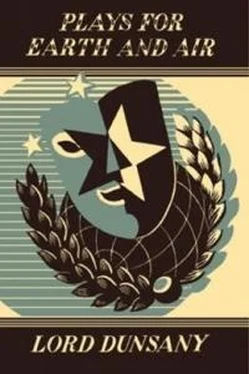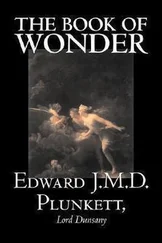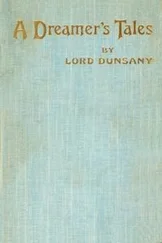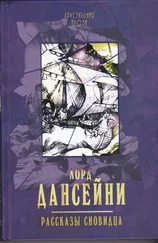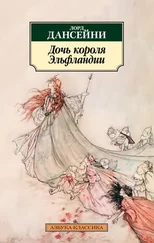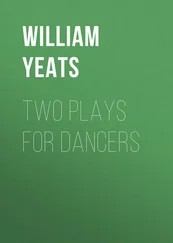UNCLE ALBERT: Poetry again! And a new five–pound note.
AUNT EMILY: But to be quite fair, Albert, that makes the loss no greater; does it, now? It’s being new, I mean.
UNCLE ALBERT: No, but it makes the act more blatant, Emily. Far more blatant, I fear. What is your view, Andrew?
UNCLE ANDREW: It does impart an element of blatancy.
UNCLE ALBERT: You hear what your Uncle Andrew says.
UNCLE ANDREW: But don’t be too hard on him.
UNCLE ALBERT: Too hard on him? Indeed I am not . I have spared his feelings where some might not have spared them. Where some might have gone as far as he deserves. But I know where to stop. I have stopped at reading out loud to all of you the twaddle he wrote on the note. Perhaps it was my duty not to have spared him, considering what this may lead to.
AUNT EMILY: No Albert, your forbearance does you credit.
UNCLE ANDREW: Yes, yes.
UNCLE ALBERT: I only hope I was right. As for your habit of writing poetry, James; you see what it has led to already and I can only hope that you will drop it immediately.
JAMES: I’ll try to, Uncle Albert.
UNCLE ALBERT: You’ll try to!
AUNT EMILY: Of course he’ll drop it, Albert. Of course you will, won’t you, James?
JAMES: I find it very difficult sometimes.
* * * * *
Several years after.
In the Auction room.
THE AUCTIONEER: We now come to the “Ode to Autumn,” the original manuscript, written on a five–pound note. It is unsigned, but in James Smith’s unmistakable handwriting. Any lady or gentleman who purchases this may consider that they have a unique possession. We cannot of course guarantee it, but there is no record that he ever wrote on a five–pound note before, and there is a record that he solemnly undertook never to do so again. That undertaking is in the Museum, and is dated: as the five–pound note was issued shortly before that date, being quite new when James Smith wrote on it, it is universally accepted that he never wrote on a bank–note afterwards. I have only two words to add. What bids, gentlemen? What bids? I should say Ladies and gentlemen.
MR. BOXTON: Five pounds.
AUCTIONEER: Ha, ha. Very amusing, Mr. Boxton. I may say, ladies and gentlemen, that Mr. Boxton is my wittiest customer. This old room would often be dull but for his quips and sallies. He has bid £5 for a five pound note. Very amusing indeed.
MR. BOXTON: Well, five guineas then.
AUCTIONEER: Two excellent jokes, Mr. Boxton.
X: Ten guineas.
AUCTIONEER: Thank you, sir. I am bid ten guineas for the Ode to Autumn, the original manuscript, on a five–pound note.
Y: Fifteen guineas.
AUCTIONEER: Thank you, sir. I am bid fifteen guineas.
Z: Twenty guineas.
AUCTIONEER: Twenty guineas? Thank you, sir.
BOXTON: Twenty–five guineas.
AUCTIONEER: Thank you, Mr. Boxton, thank you. But not quite serious yet, I think.
X: Thirty guineas.
AUCTIONEER: Thank you, sir. Thank you. Any advance on thirty guineas? Come now, gentlemen, you aren’t going to let a complete ode by James Smith in his own hand, go for thirty guineas.
Y: Thirty–five.
AUCTIONEER: Thank you, sir. Any advance on thirty–five guineas. Come, gentlemen, I have my living to make, and I shouldn’t waste my time and yours selling unique manuscripts, if they were to only go for thirty–five guineas.
Y: Forty guineas.
AUCTIONEER: Thank you, sir. Forty guineas are bid. Ladies and gentlemen I think the bidding would be much brisker, saving the time of all of us, if it were better realized how unlikely it is that there is any other such specimen in the world. I will therefore read to you a certified copy of James Smith’s undertaking, the original of which duly signed by him is in the British Museum. Here it is ladies and gentlemen. “I, James Adelbert Smith, do solemnly undertake and swear never henceforth to write again any word or words soever upon any bank–note, back or front, or upon any cheque or postal order, other than such words as may be properly required by the bank or the Post Office; or upon any other paper or parchment that is legally changeable for any sum of money.” I think that will cover the risk of anyone in the world being able to acquire anything to challenge the claim of the purchaser here to have a perfectly unique article. This undertaking that I have read is supposed to have reference to this very note. Now perhaps some lady or gentleman will make a bid that is worthy of the rarity of this article.
Z: Fifty.
AUCTIONEER: Thank you, sir. Thank you very much. Fifty guineas is bid for this probably unique article, the Ode to Autumn, in James Smith’s own handwriting, on a five–pound note. Any advance on fifty.
X: Fifty–five.
AUCTIONEER: Thank you, sir.
Y: Sixty.
AUCTIONEER: Thank you sir. Sixty is bid.
Z: Sixty–five.
AUCTIONEER: Sixty–five.
X: Seventy.
AUCTIONEER: Thank you sir. Seventy is bid. Any advance on seventy?
Y: Seventy–five.
AUCTIONEER: Seventy–five, ladies and gentlemen. Seventy–five is bid. Seventy–five guineas for this unique holograph poem, all in the handwriting of James Smith. Seventy–five. Ladies and gentlemen, if I may advise you, if any lady or gentleman would give me a bid of a hundred he would probably get this rare manuscript, he or she that is to say.
Z: A hundred.
AUCTIONEER: Thank you, sir. A hundred is offered just as I had advised. Any advance on a hundred. Any lady or gentleman … ?
X: A hundred and five.
AUCTIONEER: A hundred and five ladies and gentlemen. I am sorry, sir, for having misled you. I see now that I was too optimistic in suggesting that you might get this very rare manuscript for a hundred guineas. We all make our mistakes, and I apologize. A hundred and five, ladies and gentlemen; a hundred and five is bid. Won’t you try again, sir?
Z: Very well.
AUCTIONEER: A hundred and ten, sir?
Z: All right.
AUCTIONEER: A hundred and ten is bid.
X: A hundred and fifteen.
AUCTIONEER: A hundred and fifteen. Unlucky again sir. But then a hundred and ten was too optimistic, and you may get it yet. You may get it yet, sir, if you will try just one more bid.
Z: Well, a hundred and twenty then.
AUCTIONEER: Thank you, sir. A hundred and twenty. Any advance on a hundred and twenty. Is Mr. Z. to have it for a hundred and twenty? It looks as if they were going to let you have it, sir. And yet I can’t really believe it of them. No advance on a hundred and twenty? You’re prepared to let it go? Going for a hundred and twenty guineas. Come now, ladies and gentlemen.
BOXTON: A hundred and fifty.
AUCTIONEER: A hundred and fifty guineas. Thank you Mr. Boxton. Ah, Mr. Boxton, I knew you’d be serious after you’d had your joke. Any advance on a hundred and fifty guineas?
CURTAIN
Dramatis personæ - * an Escaped Lunatic * Dick Smith * a Guard * a Station-master
SCENE: A railway carriage.
Sounds of a train in motion.
THE ESCAPED LUNATIC: Excuse me, sir; but might I ask if you would mind having the window shut.
DICK SMITH: Not at all. Delighted.
E. L.( helping with window ): Allow me. Thank you so much. You see I have been living rather an indoor life lately, or I wouldn’t have troubled you.
SMITH: Is that so?
E. L.: Yes, rather sedentary. A good deal indoors.
SMITH: Really. Have you had bad health perhaps?
E. L.: No, perfect health.
SMITH: Just didn’t feel justified in risking the cold winds?
E. L.: No, it wasn’t that. The reason was a very curious one. A very curious one indeed. Perhaps you would like to hear it.
Читать дальше
